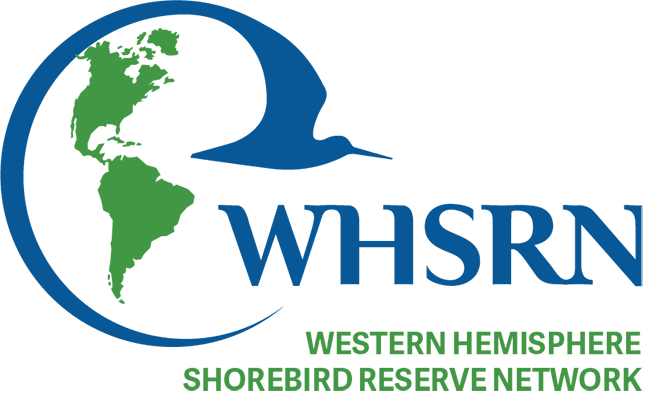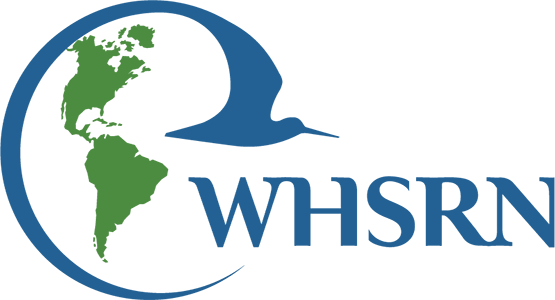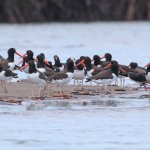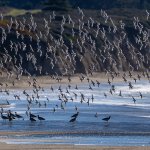In February of this year, the annual retreat of the Coastal Solutions Fellows Program of the Lab of Ornithology, Cornell University, was held in Ithaca, New York, United States. The retreat included three generations of Fellows (2021-2023) and was the first to be held in person at Cornell University after Covid-19 protocol ended travel. The main objective of the meeting was training in governance, conservation planning, monitoring, leadership, among other topics that promote peer-to-peer learning and collaborations between fellows and mentors.
To date, 15 of the 30 Coastal Solutions Fellows have implemented projects at Western Hemisphere Shorebird Reserve Network (WHSRN) sites in six Latin American countries. 10 sites were of Regional Importance, two of International Importance: and three of Hemispheric Importance.
Four members of the WHSRN Executive Office participated in the retreat: Julia Salazar and Juanita Fonseca as fellows; Isadora Angarita-Martínez as a mentor; and Diego Luna Quevedo as as governance trainer for the Program. This provided the team with the opportunity to talk with some of the Fellows who are implementing projects at WHSRN sites. They shared their experiences in addressing problems at their sites, the value of working at a WHSRN site, and the contributions of their projects for the benefit of the site and shorebirds.
Here are the highlights from interviews of several fellows: Daniela Ruz, a fellow from Chile working in the Eastern Wetlands of Chiloé (at the wetlands of Río Maullín, Bahía de Curaco de Vélez, and Bahía Villa Quinchao); Ariadna Araúz from Panama, in Panamá Bay; Gabriela Contreras from Chile, working in the Coihuín Wetland; and Gustavo Díaz from Peru, working in the Virrilá Estuary.
Turn on closed captioning for English subtitles.
Cover Photo: Coastal Solutions Fellows brave the cold during the annual retreat in Ithaca, New York. Photo: Amaranta Delgado






